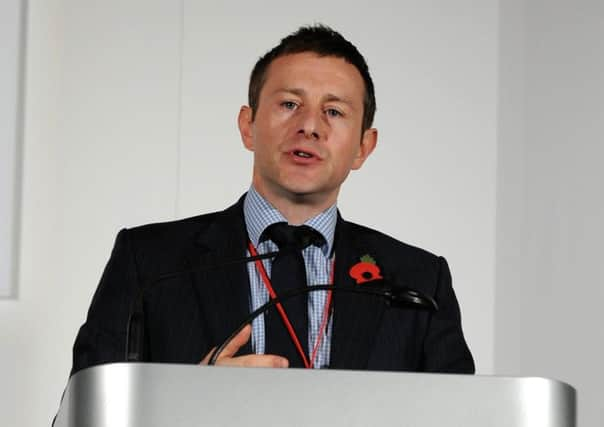Is the clock still ticking on a child obesity ‘timebomb’?


BACK in 2006 a group of parents found themselves in the news when they started taking lunchtime fast food orders to pupils at a school near Rotherham.
It was seen as a backlash against TV chef Jamie Oliver’s healthy school dinners campaign, with pictures of chips being pushed through school railings shown around the world. Some people were shocked, while others sympathised with the parents and children.
Advertisement
Hide AdAdvertisement
Hide AdNine years on and people are still talking about obesity among children. But are we making any impact on an issue that has been called a ticking health time bomb? According to a recent study the answer seems to be “yes”.
Researchers at King’s College London found that the increase in childhood obesity may have started levelling-off among the under-10s. There was a steady rise in the proportion of overweight children in England between 1994 and 2003, but the report said in the past decade it has remained at about 30 per cent, although it did add that obesity rates among 11 to 15-year-olds are still on the up.
Professor Paul Gately, who set up and runs Leeds-based weight management company MoreLife, is among the experts featured in the Channel 4 documentary Junk Food Kids – Who’s to Blame? which looks at the rise in childhood obesity, as well as the increase in severe dental problems in children.
“The over-arching narrative has been one of blaming parents and the food industry,” says Prof Gately. “Parents have a responsibility, of course, but so does the whole system including the food industry and the government.”
Advertisement
Hide AdAdvertisement
Hide AdHe believes that one of the main problems is the “minuscule” amount of public money being invested in tackling obesity in the UK. “There’s lots of talk about obesity but very little action. Less than one per cent of local authority spending from their public health budgets goes on tackling obesity in children.
Much of the debate around childhood obesity has descended into a blame game with the food industry and parents at the top of the list. “It’s easy to blame parents and lazy kids and the food industry. But there’s a disconnect between what is seen as a priority issue and the amount of money being spent,” says Prof Gately. “Some families are demonised and accused of sponging off the system when actually the system does very little for them compared to other public health issues.”
He says parents and children do have to take responsibility for what they eat and in many cases do need to do more exercise, but having worked with numerous families where obesity is an issue he believes it’s a much more complex issue. “When you scratch beneath the surface you appreciate that it’s about more than just people eating too much and exercising too little.
“We know that a lot of children who are obese have experienced some kind of trauma or mental health issue, and it’s these underlying problems that often trigger their food behaviours and their activity behaviours.”
Advertisement
Hide AdAdvertisement
Hide AdBut the latest figures suggest that child obesity rates appear to be levelling off, which is a good thing, surely?
“They are starting to level off but it depends which groups you’re looking at. Heavy kids are getting heavier and those from poorer backgrounds are more obese than kids from more affluent families. There are nuances that get masked by the general picture,” he says.
“The amount of money in the system has reduced significantly with all the cuts and this needs to be addressed. We need more action and commitment, we need the government and local authorities to take the lead but it’s just not happening.”
Junk Food Kids – Who’s to blame?, Channel 4, February 25 at 10pm.